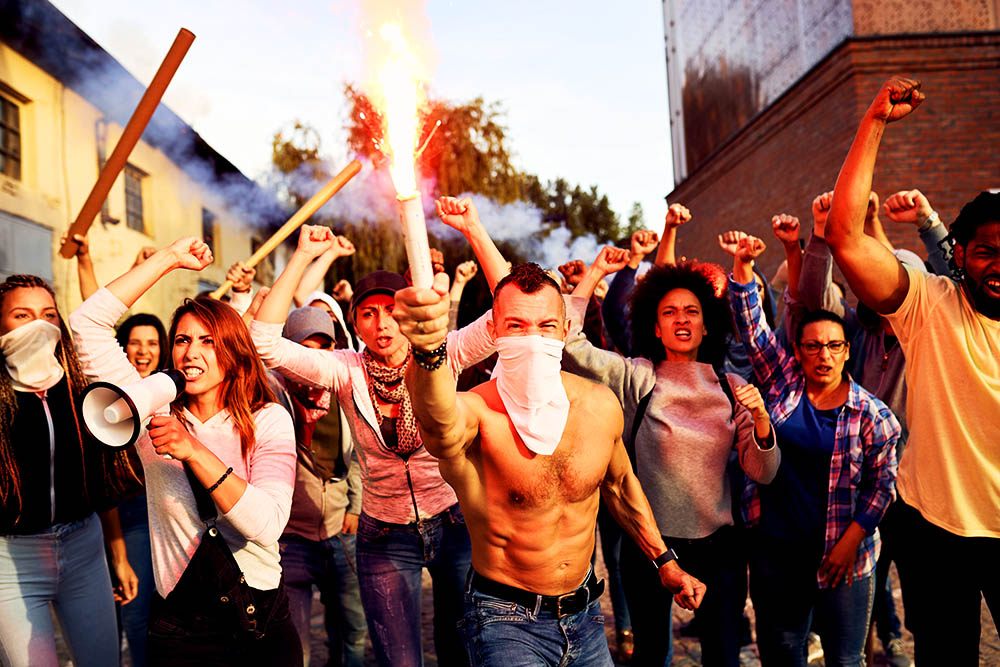Injustice and brutality have been constant companions of humanity. As we move further into the 21st century, it is disheartening to see that the world is still rife with systemic racism, police brutality, gender-based violence, and oppression in various forms. People are still suffering from discrimination and persecution, but the good news is that there are organizations, institutions, and individuals taking a stand for justice and equality. In this article, we will explore what brutality is, how it manifests in different forms, the impact it has on society, and what we can do to take a stand against it.
What is Brutality?
Brutality is a term used to describe actions that are violent, cruel, and inhumane. Brutality can be inflicted by individuals or institutions like the police, military, and governments. Brutality manifests in various forms, such as physical abuse, psychological trauma, and economic exploitation. People who suffer from brutality can experience significant physical, emotional, and mental harm that can leave lasting scars.
The Different Forms of Brutality
There are various ways in which brutality manifests in our society. Some of the most common forms include:
Police Brutality
Police brutality is an act of violence, abuse of power, and psychological torment that is perpetuated by law enforcement institutions and their agents. It is characterized by the use of excessive force, unlawful detention, imprisonment, torture, and killing of individuals, usually people of color. In the United States, police brutality has been a prominent issue, leading to nationwide protests and calls for systemic change. The Black Lives Matter movement is one of the most notable movements that has raised awareness about police brutality against people of color.
Gender-based Violence
Gender-based violence is a form of brutality that affects women and the LGBTQ+ community disproportionately. Gender-based violence includes sexual assault, domestic violence, and harassment, among others. It is a major issue that affects millions of people worldwide, leading to trauma, loss of life, and the perpetuation of harmful patriarchal norms.
Economic Exploitation
Economic exploitation is a form of brutality that is less visible but equally damaging. It occurs when individuals or institutions use their power and influence to exploit the vulnerable. Economic exploitation includes modern-day slavery, child labor, and wage theft. It affects people from all walks of life, but it disproportionately affects low-wage workers, immigrants, and people of color.
The Impact of Brutality on Society
Brutality has a significant impact on individuals and society as a whole. It can lead to a breakdown in trust between the people and institutions meant to protect them. It can also cause lasting trauma, leading to mental health issues like depression and post-traumatic stress disorder (PTSD). Brutality can create a cycle of violence and perpetuate inequality, leading to social unrest and harm to the most vulnerable members of society.
Taking a Stand Against Brutality
Fortunately, there are ways to take a stand against brutality and work towards a more just and equal society. Some of these strategies include:
1. Standing in Solidarity with the Vulnerable
One of the most effective ways to take a stand against brutality is to stand in solidarity with the most vulnerable members of society. This means using your voice and privileges to advocate for those who do not have a voice, amplifying their stories, and supporting organizations dedicated to making a difference.
2. Educating Yourself and Others
Education is a powerful tool in the fight against brutality. It helps to raise awareness about different forms of brutality, its impact on society, and how to take a stand against it. Educating oneself and sharing that knowledge with others can help to create a more informed and active citizenry, leading to more significant change.
3. Advocating for Systemic Change
To create lasting change, we need to advocate for systemic change. This means pushing for reforms in institutions like the police, government, and corporations, lobbying for policy changes that prioritize the vulnerable, and electing leaders who are committed to making a difference.
4. Taking Care of Yourself and Supporting Others
Taking a stand against brutality can be emotionally taxing, so it is essential to take care of yourself and seek support from others. This includes seeking therapy, participating in self-care practices like meditation and exercise, and building supportive networks.
Conclusion
Brutality is a widespread issue affecting millions of people worldwide. Whether it is police brutality, gender-based violence, or economic exploitation, we cannot turn a blind eye to the harm it causes. To take a stand against brutality, we need to stand in solidarity with the vulnerable, educate ourselves, push for systemic change, and take care of ourselves and our communities. By doing so, we can work towards a more just and equal society where brutality has no place.
